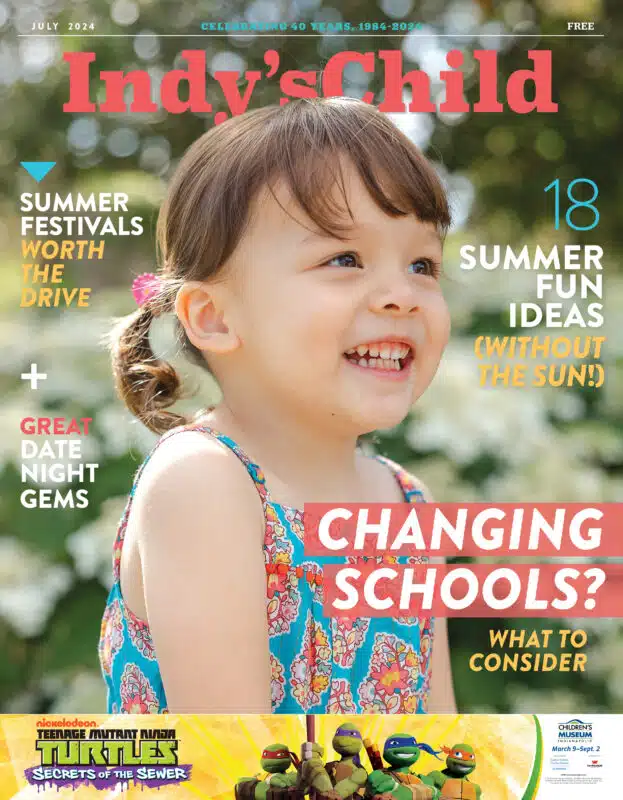The first few weeks of a child’s life can be a blur of busy appointments – with the pediatrician, your doctor, maybe even lactation consultants. But there’s one seemingly routine visit that experts urge new parents not to put off – having your baby’s hearing rechecked if he or she didn’t pass the newborn screening.
About two or three out of every 1,000 children in the United States are born deaf or hard-of-hearing, according to the National Institute on Deafness and other Communication Disorders.
Although most infants are screened for hearing loss at birth, some cases slip through the cracks, delaying crucial early intervention measures.
Teri Ouellette, President of St. Joseph Institute for the Deaf who leads the organization’s school for children 3 through 8 on Indianapolis’ northwest side, talked with Indy’s Child about the importance of early diagnosis and the language milestones parents shouldn’t ignore.
How does it happen that some cases of hearing loss aren’t identified at birth?
“Part of the issue is the way we treat the screening. Because many infants are born with fluid in their ears, a significant number of newborns fail the screening who, in fact, have normal hearing. So parents are often told, ‘Oh don’t worry, I’m sure it’s nothing.’ It’s very hard for us to get parents to bring their child in for a follow-up screening because they aren’t given the structure to take it seriously enough to follow through.”
Why is it so important to recognize hearing loss in children as early as possible?
“We hear often, ‘Well kids don’t talk until they’re 2 anyway.’ But you don’t just suddenly start talking when you’re 2. We know that babies hear sounds in utero for several months before they’re born, and while they’re not learning language, the auditory cortex is being stimulated. So for a baby who’s not hearing at birth, they’re actually already behind in development.”
Hearing loss can also come on later, months after birth. What should parents be looking for to ensure their child can hear fully?
“One of the misconceptions is that either you hear everything or you hear nothing. But it’s possible for a child to hear enough to know a sound is happening. Say you’re holding your baby and someone slams a door. You startle, so it appears that the baby startled, or maybe they only have high frequency hearing loss, so they could still hear a door slamming. Even if you yell, “Johnny!” and they turn their head, it could be because they hear something, not because they can actually hear their name, and they can’t learn language like that.”
What other hearing and language milestones should parents know about?
“All babies babble, whether they have hearing loss or not. But around eight months, they should start changing their babble to imitate their parents. By 12 to 14 months, your baby should start to assign meaning to things – you say, ‘Dada’ and they look for daddy. Worry less about if they’re saying those words than if they seem to understand what they mean.”
And these benchmarks are the same for all children, no matter how many older siblings they have?
“Yes. People will sometimes say, ‘Oh, they’re the second child, they won’t talk as soon as the first because their big brother talks for them.’ But even second or third children should be doing these other things on time.”
Early intervention options, such as hearing aids, cochlear implants and speech therapy, have come a long way. Why is it important to get these measures in place as soon as possible?
“We have a window of development, neurologically, and once we’ve passed that window, you can’t go back. Hearing loss doesn’t just affect a child’s hearing, it affects their language, their reading ability and their ability to organize information and act on it. So it’s incredibly important for that early identification and early auditory access that builds all those building blocks.”







